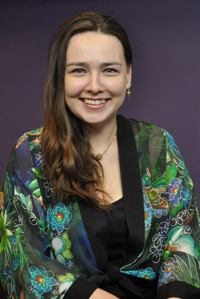
Elena Roussanova Lucas
Position
Professor
Affiliated Departments
Telephone
617-747-3126
For media inquiries, please contact Media Relations
Career Highlights
- Elected member of United Russian Composers Union, 2000
- Chosen as featured composer for concert program featuring up-and-coming composers, Tchaikovsky State Symphony Orchestra of Moscow
- Published by Warner Bros/Alfred Music Publishers and Denis Wick Publications
- Works performed by the Bolshoi Ballet Brass Quintet; the Boston University Brass Ensemble; Dallas Brass National Tours; the Dartmouth College Wind Symphony; the Kremlin Music Festival; the Las Vegas Music Festival; the Russian National Brass Quintet; and the Tchaikovsky State Symphony
- Faculty member, Boston University College of Fine Arts
Awards
- Compositions received Editors’ Choice Award, J.W. Pepper & Son, and included on many state lists
In Their Own Words
